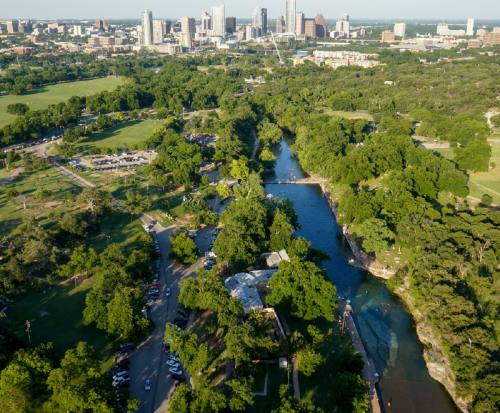The proposal is highlighted by a $250 million allocation to affordable housing, the highest such allocation in city history. The package also includes $45 million for parkland acquisition, $12 million for land acquisition for creative spaces and $40 million for city pool renovations.
Following three hours of public testimony and two hours of deliberation, City Council voted 8-3 in favor of the proposal. Council members Jimmy Flannigan, Ellen Troxclair and Ora Houston dissented in favor of a more conservative approach.
If approved by voters, the bond package will carry a 2-cent tax rate increase for the next 30 years. For someone with a $300,000 home, this will result in an added $60 per year, or $1,800 over the life of the bond.
In 2016, voters approved a 30-year, 2.25-cent tax rate increase in exchange for a $720 million bond for mobility projects, which remains the largest voter-approved municipal bond in city history.
A historic vote
The supportive council members took time to recognize the historic nature of the proposal, which comes amid the city’s ongoing affordability crisis and a strong push in the community toward equity measures.
“This is the most important investment in affordable housing this city has ever made,” said District 4 Council Member Greg Casar, who has been pushing for a historic affordable housing allocation for the 2018 bond. “This is going to be a very powerful investment in ourselves, our families and our future.”
The $250 million proposal is a drop in the bucket, however, in Austin’s affordable housing need. According to the recently approved housing plan, the city carries an affordable housing shortage of 48,000 units, which experts estimate would cost $6 billion to fulfill.
Although City Council voted in favor of the proposal, it is only a proposal. Council will vote again in August whether to put the question on the ballot, and in November, voters will get the final say.
In 2012, voters rejected a $78.3 million affordable housing bond but a slimmed down $65 million affordable housing bond passed the following year, marking the most money allocated to the effort in city history.
District 10 Council Member Alison Alter supported the proposal, but said she preferred staff’s recommendation of $161 million for housing. Alter stressed the risk council was taking with such a large proposal. If voters reject the bond in November, no money goes to affordable housing. Alter said she wanted city staff to poll voters before council votes again in August.
District 5 Council Member Ann Kitchen said she was confident in the voters.
“This is a historic level of funding for housing,” Kitchen said. “From my perspective, it is time we had that conversation with the community. I hope the community is ready. I think they are ready.”
Bond breakdown
If history is any indicator, the bond package will be presented in seven questions—one for each category of funding—that voters will address separately:
- $250 for affordable housing
- $38 million for public safety
- $160 million for transportation infrastructure
- $184 million for flood mitigation and open space
- $149 million for parks and recreation
- $128 million for libraries and cultural centers
- $16 million for health and human services
Other highlights of the proposal include $3 million to move the Austin History Center to the old Faulk Library, $68.5 million for bus lane and city street improvements and $50 million to replace the Red Bud Trail/Emmett Shelton Bridge over Lady Bird Lake.
Editor's note: A previous version for this story miscalculated the money allocated to land acquisition for creative space, parks and recreation and library and cultural centers, as well as the historical nature of the bond.





